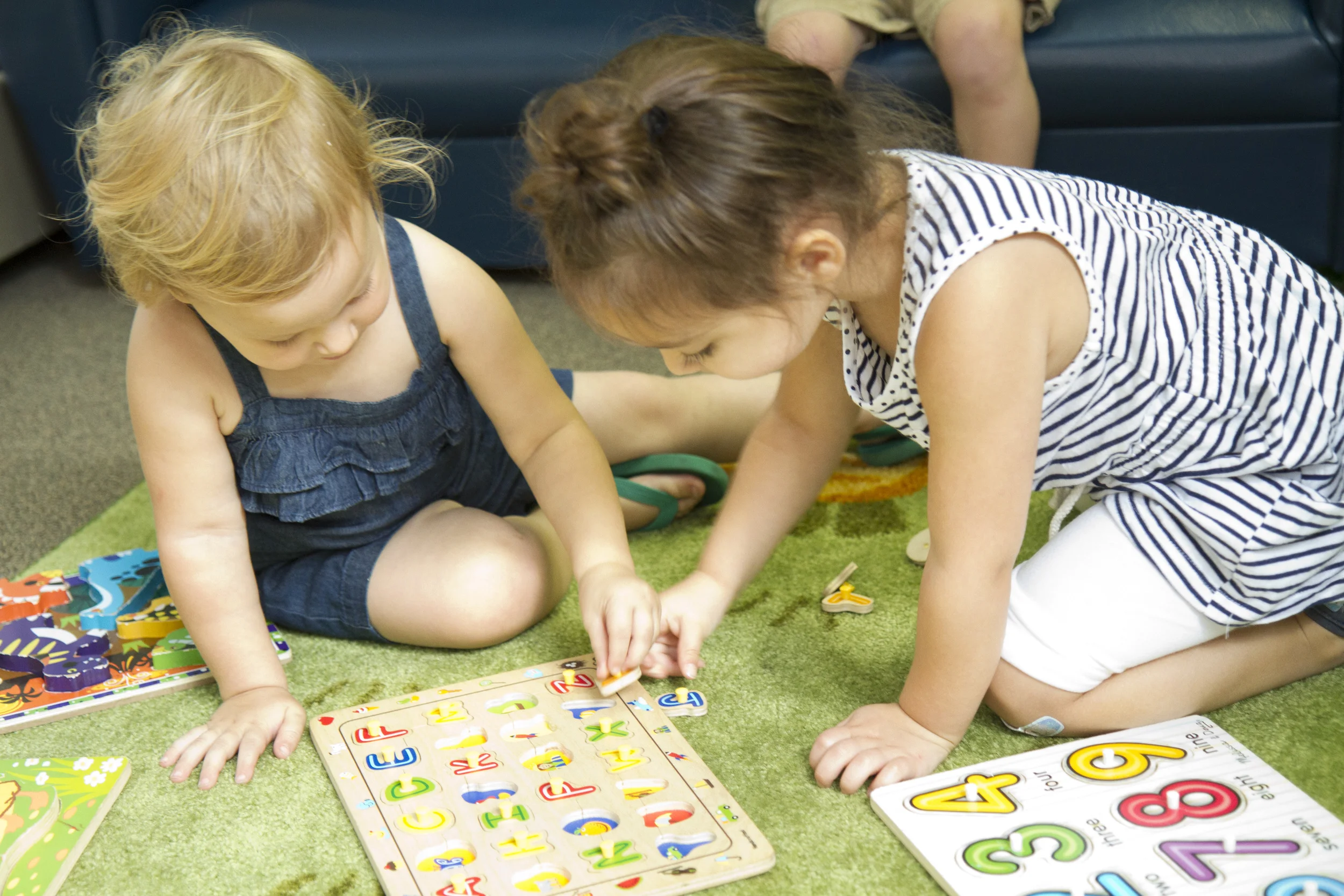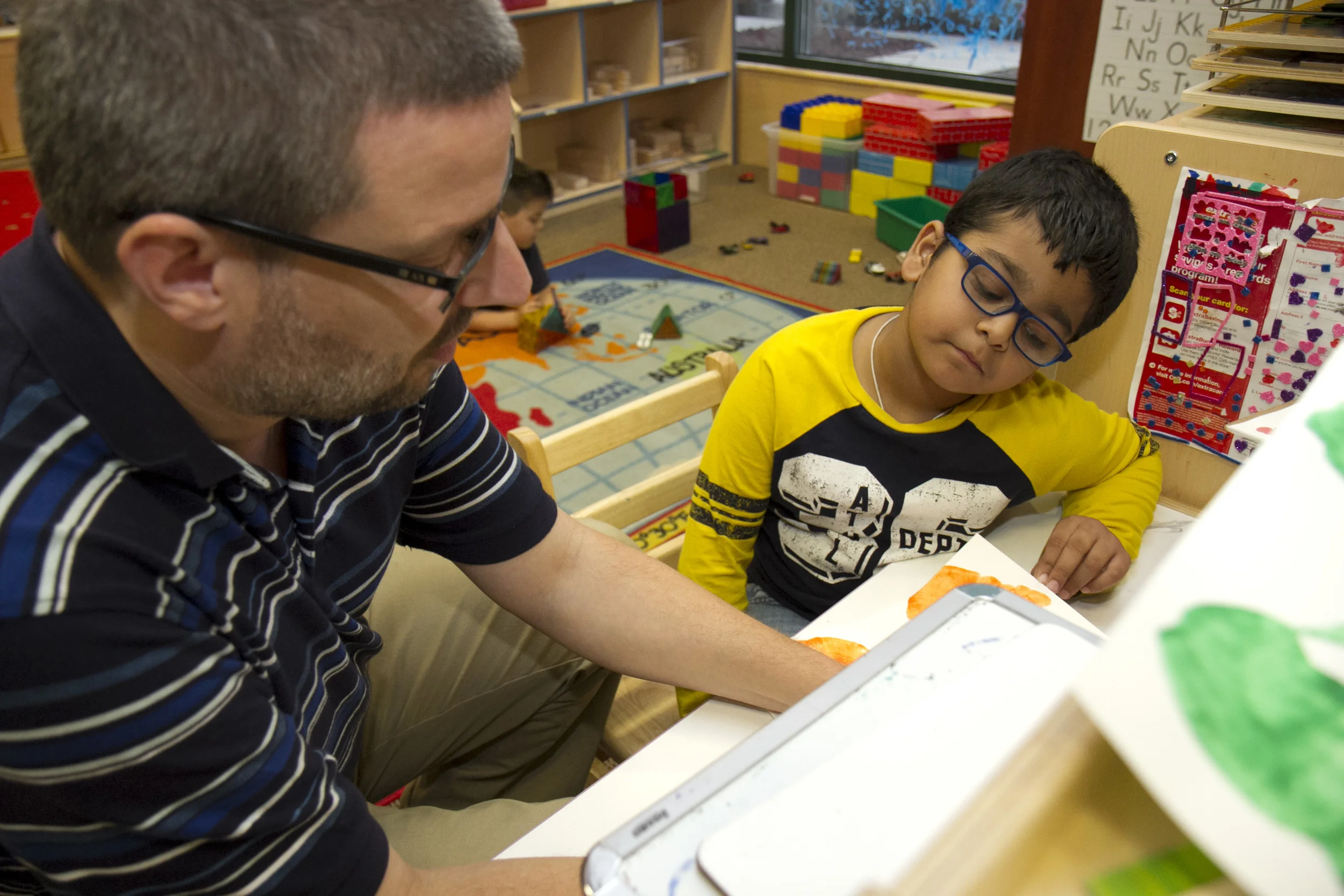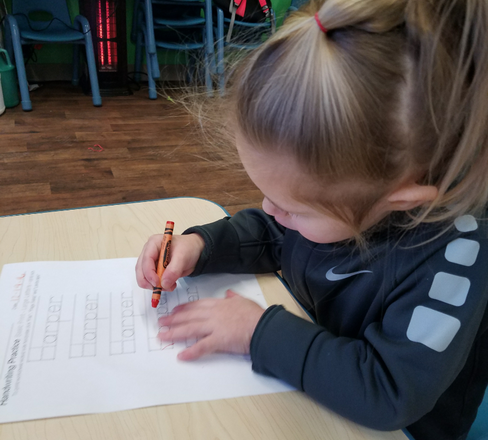From Infancy to Toddlerhood and twos to preschool, we support and prepare your child.
Belonging to one cohesive preschool environment from infancy to prekindergarten gives your child immeasurable confidence in and positivity toward learning and socializing. With this confidence in hand - Sonnets Academy students approach kindergarten head-on and ready to enjoy learning and personal growth. This positive outlook is build over time with the support and encouragement of a team of educators dedicated to each child's whole development, happiness, and success. Our teachers and directors work closely with parents to create a seamless early learning environment wherein children feel that their uniqueness is celebrated and their interests are supported.
DISCOVER OUR PLAY-BASED PRESCHOOL
IN ACTION
Make the best choice for your child's early learning environment. Bring your child along for your Sonnets Academy tour to help them feel comfortable and confident in their school community from the start. A warm welcome and a bit of encouragement are key to building excitement about belonging to the vibrant and bustling atmosphere that Sonnets Academy teachers and students create - together.
Sonnets Academy welcomes new touring children by introducing them to each classroom and teacher, letting them get to know the space, and inviting them to circle time, stations, & free play. Your child will feel welcome, valued & important. Sonnets Academy emphasis on individuality and strengths is the foundation for our cooperative learning community.
RESOURCES FOR EARLY LEARNING & DEVELOPMENT
Toddlers & Twos want all of the stimulation and activities they can get their hands on, not just to keep them occupied, but because their sensory, motor, cognitive, & communication skills are forming and growing at a rapid pace.
Our play-based curriculum begins at early infancy and continues through prekindergarten, concentrating on the process through which children learn. Discovery-based play expands imagination, encourages sense of wonder and provides a diverse and comprehensive foundation for cognitive, social, emotional & creative growth that will shape their adolescence and adulthood. Sonnets Academy focuses on providing the following resources to create a seamless early learning community for our students:
Classroom Activities
Sonnets Academy teachers customize their lesson plans to both reflect Sonnets Academy's curricular objectives and follow our monthly curricular themes. Our teachers create classroom activities that each student can build upon in their own way – focusing on strengths.Individualized Attention
We create a personalized portfolio for each student complete with bi-annual assessments to benchmark each child's unique progress and milestones in order to adhere our curriculum to the needs of each child as they transition to up to our older classrooms.School-wide Activities
We aim for our students to feel valued and important as individuals, but our Sonnets Academy also strives for children to understand the significance of participating as both a class unit and as a school. Each student's unique talents and perspective combines with their peers to create a culture in our schools. School wide activities and projects allow students to interact with children of different ages and to feel like they are a part of something big.Communication with Parents
The home/school connection that our teachers create is so instrumental to maintaining continuity between the positive learning environment in our classrooms and our students homes. Our directors send out monthly school-wide newsletters to keep parents up-to-date with curricular themes, focuses of our enrichment programs, and events that we are hosting. Parents also have access to their child's classroom lesson plans so that they can incorporate some of our activities and topics into their conversation at home, in addition to access of classroom photos so they can get visual updates throughout the day.Community Involvement
Community matters at Sonnets Academy. Our team of educators strive for our early-learning communities to reflect the vibrancy of the families and the neighborhoods in which they live. Collaboration with like-minded neighboring businesses and organizations is the best way to expand our learning environment into the community while strengthening our local economy. Our local partners include Neighborhood Parent Network (NPN), Chicago Parent, and Chicago Children's Museum.
CELEBRATING DIVERSITY
Sonnets Academy celebrates the individuality of children. Our devotion to instilling confidence combined with exposure to all types of diversity gives our students the tools they need to work together, support & appreciate one another, and build off of each others' strengths. Our curriculum very much allows each child to build upon each lesson plan's learning objectives in their own way in order to realize their own strengths and interests. Finding confidence in their individuality allows Sonnets Academy students to share their talents with their classmates and collaborate cohesively. Our students are taught to grow on an individual basis while supporting their peers and realize that they are part of something big and that their presence, talents, and contribution is valued. These small details about our early learning environment will go on to benefit our students immeasurably as they approach more complex social, learning, and working environments for the rest of their lives.
EARLY LITERACY INITIATIVES
Language, Literacy, & Communication
Confidence in the ability to communicate effectively empowers children to approach new milestones in social and emotional learning with ease. Similarly, children who love reading from the start approach lifelong learning eagerly and confidently. Language, communication & literacy development unfold simultaneously and benefit tremendously from a nurturing early learning environment - beginning in infancy and transitioning smoothly from toddlers to twos and preschool to prekindergarten so that by the time children reach kindergarten, not only do they grasp the fundamentals of reading, phonetics, writing and spelling, but they also have established a love of stories, books, and learning in general.
Infants
Teaching infants as young as four months to communicate basic feelings and needs through infant sign language combines language and fine motor development. This process begins with adults modeling associations between words, concepts, and gestures until babies’ motor skills are strong enough to express their needs for themselves. Sign language gives infants a tool to communicate effectively without frustration - aiding in long-term emotional, verbal, and cognitive development. Learning to sign prior to speech can accelerate verbal development as babies learn and practice word associations at an earlier age.
Toddlers
Toddlerhood is a great time to begin actively promoting early literacy when children are progressing from communication through gestures to using one, two, and then eventually three word sentences. Language development typically takes off around 18 months. By age two, children have learned between 100-1,000 words and are actively experimenting with plurals and tenses. Providing children with consistent and engaging stimulation at this age will help ignite their vocabulary development as their curiosities are piqued about fun and engaging activities and topics.
Twos
Twos are able to comprehend most of the language that they hear, and they are developing an awareness of print. In terms of their own verbal development, their vocabulary and language explodes from two word sentences to six or more word sentences by the time they are three, and they begin to use pronouns appropriately. During this year, children’s natural love of inquiry takes root; they are eager to learn as much as they possibly can, learning new words and expressing themselves in new ways more every day. A classroom environment helps two-year-olds make the most of this natural curiosity by guiding and building on their interests with lesson plans and activities tailored to this unique stage in language and literacy development.
Preschool
Between three and four, children begin to notice print more and more every day. They begin to realize that letters make words and want to know the meaning of every word they see. They are experimenting with writing letters and are very excited to write familiar names and words. They speak in full sentences the majority of the time and can carry on a conversation for at least two turns, and their vocabulary expands to over 500 words. Their love of books expands with their growing attention span, and now they are able to sit for longer stories as well as remember and understand more complex books.
Prekindergarten
Promoting literacy in prekindergarten builds upon the natural curiosities of students when the complexity of their speech, conversations, writing, and storytelling are evolving immensely. Pre-K students share their experiences through language and creative expression, whether it be about their day at school or a memory that inspires them. Teachers can use this as an opportunity to incorporate literacy initiatiaves wherever possible. Surrounding students with words and letters in the classroom and practicing writing daily helps students to eventually recognize sight words and develop enthusiasm about literacy and language expression before kindergarten.
MILESTONE TRACKING
Tracking milestones gives early education professionals the tools they need to gain a full sense of your child's specific needs. Additionally, if there are any aspects of your child's early development that would benefit from special attention, our teacher's individualized attention toward your child's development will allow these needs to be identified early so that we can make a plan with your family about the best way to address them.
Our curriculum structure gives our teachers the ability to build their classroom activities from where their students take the most interest while following age-specific learning and development objectives in the following categories:
- Fine & Gross Motor Skills
- Language & Communication
- Cognitive Development
- Creative Expression
- Music & Movement
- Social & Emotional Development
- Self-Help
Your child's portfolio begins with an aggregation of their day-to-day trends concerning these developmental objectives, followed by twice-annual assessments with a more in-depth look at your child's progress. Their portfolio follows them from classroom to classroom so that, by the time they enter preschool and prekindergarten, they have a sense of achievement and pride from looking back on all of their hard work, adventure, and fun.
LIFELONG LEARNING & PERSONAL GROWTH
When a child’s play is guided and encouraged by their teacher, the child establishes trust, respect & confidence – essential to a lifelong love of learning. Children also learn how to navigate their future interpersonal relationships from their social interactions in early childhood. When children play together, they learn to celebrate differences as they cooperate and collaborate - creating empathetic problem solvers.
From teaching the basics of physical and emotional well-being in yoga class to expanding linguistic horizons in Spanish class, Sonnets Academy exposes our students to a balanced and comprehensive variety of learning opportunities. Sonnets Academy's weekly Spanish, yoga & music enrichment classes for every age group are included in the cost of tuition.





















Socialization becomes the platform for play and learning in preschool.
Children learn how to navigate their future interpersonal relationships from their social interactions in early childhood; providing a social atmosphere for toddlers and two-year-olds when their language and motor skills are blossoming more than ever makes all the difference.
When children play together, they learn to celebrate differences as they cooperate and collaborate - creating empathetic problem solvers. When a child’s play is guided and encouraged by their teacher, the child establishes trust, respect & confidence – essential to a lifelong love of learning.
Children start learning to recognize and manage their feelings in toddlerhood, and their emotional awareness evolves immensely from their second to fifth year. During these years, we watch as children's emotions transform from immediate and instinctual responses where they can go from happy to frustrated in a split second, to being more self-aware and calculated. Toddlers and twos begin to understand rules and will often test limits to see what behavior is acceptable. Preschoolers and prekindergarteners begin to incorporate their social and emotional fortitude with their sense of reason as they assess how their emotions affect their decision making. Emotional development prior to the age of three will significantly impact the way that children approach decision making and conflict resolution for the rest of their lives. Sonnets Academy's dedication to whole-child development places emphasis on guiding emotional learning in constructive and positive ways to instill confidence.
Providing a constructive social environment in early childhood allows emotional development to expand to its fullest potential; a classroom environment provides opportunities for social and emotional learning that cannot result from just one-on-one interactions. Toddlers engage in parallel play before advancing to collaborative play and finally interactive play. During parallel play the children sit side by side and play with different toys. During collaborative play the children may trade a toy between them and are more interested in the giving and taking of the toy then interacting with their friend. During interactive play the children are actually playing together. Toddlers and twos are capable of forming genuine friendships and will have a preference for whom they play with.